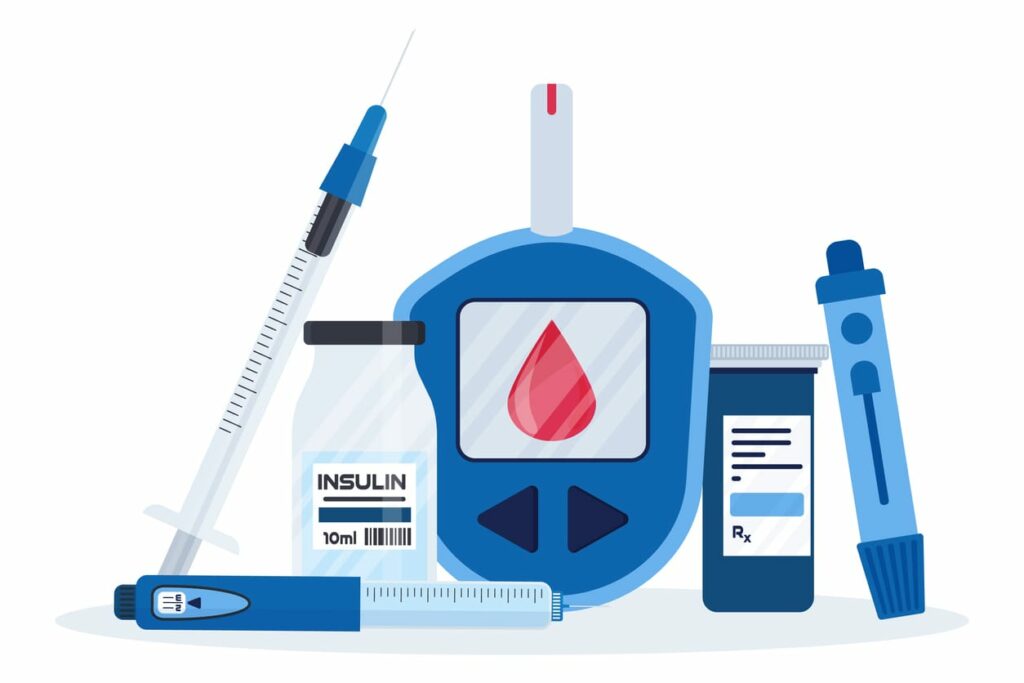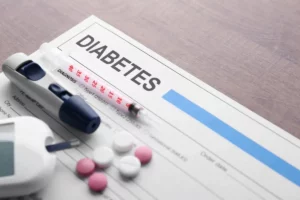Diabetes, a chronic condition affecting millions worldwide, requires ongoing management and care. Central to this management is the use of various medications, which can be a significant financial burden for many. This comprehensive guide aims to delve into the cost of diabetes medications, offering insights and strategies to manage these expenses effectively.
Contents
Is Diabetic Medication Expensive?
Diabetic medication can indeed be expensive, especially for individuals who are uninsured or underinsured. The cost varies widely depending on the type of medication, brand, and the patient’s insurance coverage. Insulin, a vital medication for many people with diabetes, particularly those with Type 1 diabetes, has seen significant price increases over the years. Brand-name insulins are more costly, and even though generic or biosimilar versions exist, they may not always provide a substantially cheaper alternative.
Additionally, there are various other medications for managing diabetes, such as Metformin, Sulfonylureas, and newer classes like GLP-1 receptor agonists. This can also be expensive, particularly the newer medications.
The financial burden of diabetes medication is not just limited to the cost of the drugs themselves. Managing diabetes effectively often requires a combination of different medications, regular blood sugar monitoring, and lifestyle changes, all of which can add to the overall expense.
What Is The Cost Of Diabetes Medications?
The cost of diabetes medications, particularly insulin, has been a significant concern for patients. However, recent developments in 2024 indicate some relief in these costs, especially in the United States. Major insulin manufacturers like Sanofi, Novo Nordisk, and Eli Lilly have taken steps to lower the cost of insulin to $35 a month for many patients. These companies have also reduced the list prices for their insulin products.
For instance, Sanofi cut the list price of Lantus by 78%, Novo Nordisk reduced the prices of some of its insulin products by up to 75%, and Eli Lilly slashed the prices of Humalog and Humulin by 70%.
Additionally, the Inflation Reduction Act of 2022 has played a pivotal role in capping insulin costs for Medicare enrollees at $35 per month. For those with private or commercial insurance, several states have enacted legislation to cap co-payments on monthly insulin. There are also patient assistance programs provided by insulin manufacturers for uninsured individuals, offering insulin at reduced costs or even for free, depending on eligibility.
In the UK, the cost of diabetes treatment encompasses not just the medications but also the associated healthcare services. The total estimated annual cost of treating diabetes and its complications is substantial, with a significant portion attributed to inpatient care and medication for diabetes and its related complications.
These efforts reflect a growing acknowledgment of the financial burden placed on individuals with diabetes and a move towards more affordable diabetes care. However, the cost of diabetes medication can still vary based on various factors.
What Is The Cost Of Diabetes Medication In India?
 In India, the cost of diabetes care is a significant concern, especially given the high prevalence of the condition. On average, an individual with Type-2 diabetes spends about ₹11,000 annually on diabetes care, with this cost increasing with age. For example, the annual cost can rise from ₹6,000 in the early thirties to ₹17,000 by the age of 60.
In India, the cost of diabetes care is a significant concern, especially given the high prevalence of the condition. On average, an individual with Type-2 diabetes spends about ₹11,000 annually on diabetes care, with this cost increasing with age. For example, the annual cost can rise from ₹6,000 in the early thirties to ₹17,000 by the age of 60.
These expenses reflect the overall cost of managing diabetes, including medication, monitoring, and other related healthcare needs. The diabetes care market in India is expected to grow substantially in the coming years, indicating an increasing demand for effective and affordable diabetes management solutions.
How To Manage The Cost Of Diabetes Medications?
Managing the cost of diabetes medications involves several strategies:
Insurance Coverage
Patients should familiarize themselves with their insurance plan’s formulary. This lists the medications covered and their respective co-pay amounts. Understanding your plan’s specifics, such as deductibles and out-of-pocket maximums, is crucial. Additionally, during open enrollment periods, comparing different plans based on their coverage of diabetes medications can be beneficial.
Generic Medications
Generic drugs are typically more affordable alternatives to brand-name medications. They contain the same active ingredients and are equally effective but are often sold at lower prices. Discussing with your healthcare provider about switching to generic versions of diabetes medications can lead to substantial savings.
Patient Assistance Programs
Many pharmaceutical companies offer patient assistance programs to help individuals afford their medications. These programs are particularly helpful for uninsured or underinsured patients. Eligibility criteria often include income limits, lack of insurance coverage, and a prescription for the medication. Enrolling in these programs can significantly reduce or even eliminate the cost of diabetes medications.
Pharmacy Comparisons
The cost of medications can vary between pharmacies. Shopping around and comparing prices at different pharmacies can lead to finding the best deals. Some pharmacies may offer a lower price for the same medication, and considering mail-order pharmacies, which often provide discounts for bulk purchases, can also be cost-effective. Additionally, various online tools and apps are available to compare medication prices at local pharmacies.
Discount Cards and Coupons
Discount cards and coupons can be a valuable resource in reducing the cost of diabetes medications. Pharmaceutical companies, pharmacies, and independent organizations often provide these discounts. Patients can access these coupons online, through diabetes advocacy groups, or directly from a doctor’s office. While not all medications may have coupons available, it’s worth researching and asking healthcare providers about any available discounts.
Government Programs
In many countries, government-sponsored healthcare programs can offer support in managing the cost of diabetes medications. These programs may provide subsidies, reduced pricing, or even free medications for eligible individuals, particularly those with low income, disabilities, or other qualifying factors. It’s important to research and understand the eligibility criteria for these programs and apply if you qualify.
Budgeting and Planning
Effective budgeting and planning are crucial for managing medication costs. This involves not only allocating a specific portion of your income for healthcare expenses but also exploring ways to reduce costs in other areas. By keeping track of all medical expenses, including medication, doctor visits, and supplies, you can better understand your financial situation and make informed decisions about your healthcare spending.
Healthcare Provider Consultation
Regularly discussing medication costs with your healthcare provider can lead to the discovery of more cost-effective treatment options. Healthcare providers are often aware of the latest developments in diabetes care, including new medications that may be more affordable or effective. They can also guide managing the condition more efficiently and may refer you to programs or resources that can help reduce costs.
What Is The Cheapest Type 2 Diabetes Medicine?
 The cost of Type 2 diabetes medications can vary widely, but generally, older, generic medications tend to be more affordable. One of the most commonly prescribed and cost-effective medications for Type 2 diabetes is Metformin. It’s a first-line treatment that is effective in lowering blood sugar levels and is available in generic form. This significantly reduces its cost compared to newer, brand-name drugs.
The cost of Type 2 diabetes medications can vary widely, but generally, older, generic medications tend to be more affordable. One of the most commonly prescribed and cost-effective medications for Type 2 diabetes is Metformin. It’s a first-line treatment that is effective in lowering blood sugar levels and is available in generic form. This significantly reduces its cost compared to newer, brand-name drugs.
However, the “cheapest” medication can depend on various factors like geographical location, insurance coverage, and pharmacy pricing. So, it’s advisable to consult a healthcare provider for the most suitable and economical option for individual needs.
Conclusion
In conclusion, managing the cost of diabetes medications requires a multifaceted approach. From utilizing insurance benefits and considering generic drugs to taking advantage of discount programs and government aid, there are various strategies to alleviate the financial burden. Budgeting and open communication with healthcare providers are key in navigating this complex landscape.
By staying informed and proactive, individuals with diabetes can effectively manage their medication costs, ensuring they receive the necessary treatment without overwhelming financial stress. Do you want to get rid of diabetes? Join our online diabetes treatment program and reverse Diabetes naturally through lifestyle changes such as a Personalized Diet plan, Exercise, Yoga, dieticians, and health coaches.


